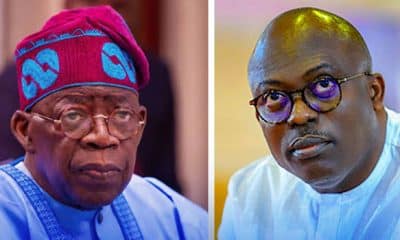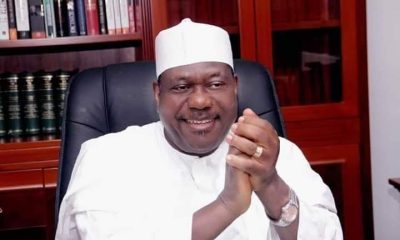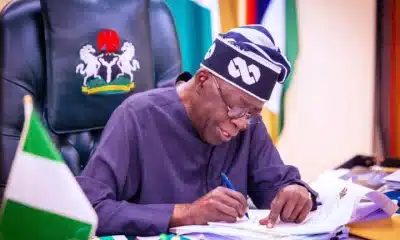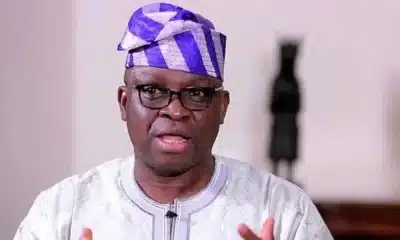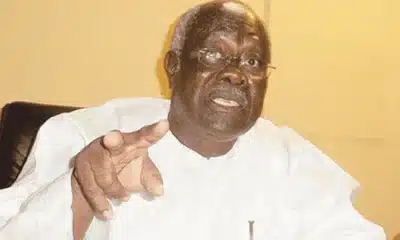Nigeria News
‘Let’s Learn From India, Sudan’s Experience’ – Tinubu Cautions Nigerians Against Planned Protests
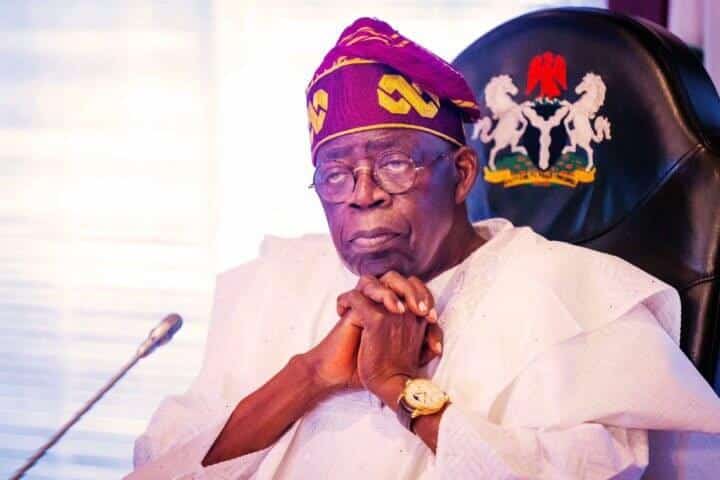
President Bola Tinubu has called on young Nigerians to refrain from participating in planned protests against the Federal Government’s economic reforms.
Naija News reports that some Nigerians, particularly the youth, have planned a nationwide protest from August 1st to 10th to draw the government’s attention to the prevailing hardship in the country.
Speaking in Abuja at the National Council of Traditional Rulers meeting, Tinubu, represented by the Secretary to the Government of the Federation, George Akume, cautioned against allowing economic hardship to be exploited by individuals with ulterior motives to incite protests.
He emphasized the need for patience and commitment from Nigerians during this critical period of economic reform, urging citizens to remember past instances where crises threatened national peace and diversity.
Tinubu highlighted the lessons to be learned from India and Sudan’s experiences, noting that Nigeria, with its population of over 200 million, cannot afford such instability.
“Capitalising on the economic hardship in the country, some men and women with sinister motives have been reported to have been mobilising citizens, particularly youths, to stage a protest.
“Let’s learn from India and Sudan’s experiences. We are a country with more than 200 million people.
“Therefore, we can’t afford to have this kind of situation,’’ he said.
The President assured that the government has implemented policies to alleviate economic challenges, including procuring Compressed Natural Gas vehicles, introducing a student loan scheme, distributing palliatives, and providing agricultural inputs like tractors and fertilizers.
He also emphasized ongoing efforts to address security issues in the country.
Tinubu urged traditional leaders to promote peace within their communities and engage with young people and parents to foster harmony.
The Sultan of Sokoto, Alhaji Sa’adu Abubakar III, supported this view, advocating dialogue as the best means to resolve conflicts and highlighting the necessity of peace.
The Ooni of Ife, Adeyeye Enitan, stressed the importance of patriotism and national cohesion for development, asserting that any threat to unity must be resisted.
He acknowledged President Tinubu’s efforts to address the nation’s challenges and reiterated that Nigeria belongs to all its citizens.
Dr. Mainasara Umar-Kogo, Chairman of the Code of Conduct Tribunal, noted the effectiveness of traditional institutions as local administrative bodies since pre-colonial times.
He called for their roles to be restored in the constitution to preserve socio-cultural values, suggesting that past administrative reforms have diminished their influence.

